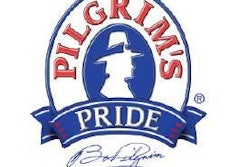Back in my January column, I shared my belief that the passage of California’s Proposition 2, the Standards for Confining Animals Initiative, was the worst news that the U.S. poultry industry received in 2008.
At meetings this winter and early spring, I have seen a few post mortem presentations on why animal agriculture lost the public relations battle over Prop 2 and what the poultry industry should do to avoid losing future contests. The presentation by Charlie Arnot at the National Turkey Federation’s annual convention offered a prescription that could prevent Prop 2 like problems in the future.
Arnot is a public relations professional who has a lot of experience with animal agriculture. He is president of his own firm, CMA Consulting, and is CEO for the Center for Food Integrity (CFI), a non-profit organization committed to increasing consumer trust and confidence in the contemporary U.S. food system.
Prior to going into consulting, Arnot was vice president of communications and public affairs for Premium Standard Farms, a large hog producer. He knows agriculture and consumers and he presented some convincing arguments on how the poultry industry can get connected with consumers and maintain their trust.
A totally fact-based argument will not sway consumers, according to Arnot.
“Consumers don’t care how much you know until they know how much you care,” Arnot said.
“They want permission to believe that your practices are OK.”
He explained that fact based arguments have little chance of convincing consumers unless consumers are convinced that you share their values. If consumers are concerned about the welfare of poultry, then growers, processors and retailers need to first communicate that this concern for bird welfare is shared before talking about floor space per bird or the type of stunning system used.
Expertise doesn’t seem to matter much if the expert doesn’t care about what the consumer cares about. Arnot said that value similarity is four times more important than competence in building public trust.
Arnot said that if an industry has “social license” it is afforded the privilege of operating with minimal formalized restrictions because the industry has maintained public trust by doing what’s right. He went on to say that having public trust means that society believes that the activities of the industry are consistent with social expectations and the values of the community and the other stakeholders.
If an industry loses it social license, then it is forced to operate in a world full of regulations and restrictions. A good example of this is what happened to the meat packing industry back in 1906. Just imagine what meat and poultry processing might be like if loss of public trust hadn’t led to government inspection of slaughter plants.
The agricultural community must engage in values based communication to build trust in contemporary production systems.
“We have to give customers, policy makers, community leaders and consumers permission to believe that contemporary livestock production is consistent with their values and expectations,” Arnot said.
“Failure to do this will result in revocation of our social license and freedom to operate.” Loss of social license leads to things like banning the use of cages for housing layers, like what could happen in California in 2015.
“We have to build and communicate an ethical foundation for our activity and engage in value based communication if we want to build the trust that protects our freedom to operate,” Arnot said.
“Values based communication” is not an easy undertaking for people who think logically. NTF split attendees at the convention’s general session into four groups and assigned each group the task of developing a message for the public using “values based” language, it was a struggle for those of us who don’t naturally think that way.
NTF has become a member of CFI and is committed to developing messages that convey to society the industry’s commitment to “doing the right thing.”
While listening to Arnot, I just had a feeling that he was right and that this is the approach that the poultry industry needs to take. I never would have come up with this approach myself in a million years, but I am convinced that it is the right one.
“Consumers don’t care how much you know until they know how much you care.”

















